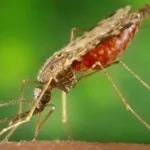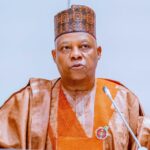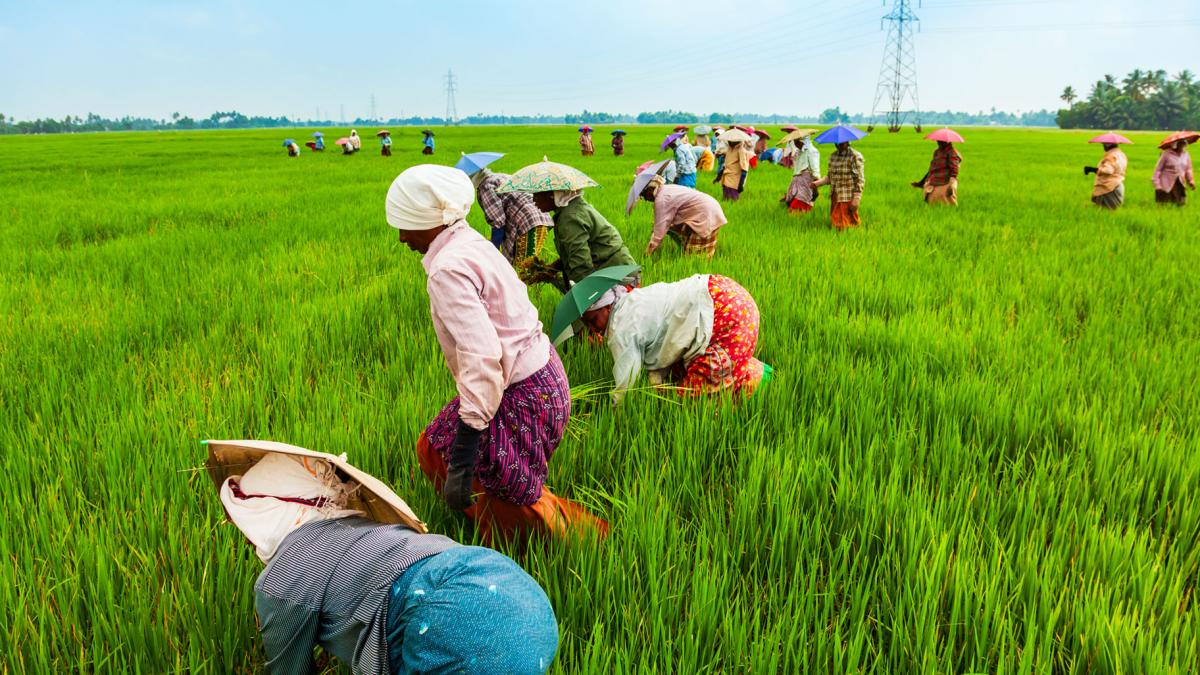Food security: Rethinking agriculture budget
By Chijioke Okoronkwo and Felicia Imohimi, News Agency of Nigeria (NAN)
The current cost of living crisis vis-à-vis attendant agitations has accentuated the need to scale up the agriculture budget.
Policy analysts hold that the N362.9 billion appropriated to the agriculture sector in the 2024 budget fell short of the 2014 Malabo Declaration that African countries should allocate at least 10 per cent of their national budgets to the agricultural sector.
Stakeholders in the agriculture sector are taking proactive measures to ramp up the agriculture budget in 2025 in order to bolster food production.
The stakeholders converged on Lagos recently under the aegis of the National Stakeholders Consultative meeting on 2025 agriculture budget.
They comprised state ministries of agriculture, Federal Ministry of Agriculture and Food Security (FMFS), Ministry of Budget and Economic Planning, ActionAid Nigeria, Oxfam, GIZ, Community of Agriculture Non-State Actors (COANSA) and ECOWAS Commission.
Underlining the thrust of the event, Mrs Elizabeth Egharevba, Director, Economic Growth Department, Federal Ministry of Budget and Economic Planning, said the annual event was to assist the country to achieve the Malabo declaration.
Egharevba, represented by Mr Olaitan Fatai, Deputy Director in the ministry, said that the meeting was strategic by bringing together relevant stakeholders to contribute their inputs into the 2025 agricultural budget.
She identified the forum as a milestone in the country’s efforts at ensuring that it achieved the Malabo declaration and proffered solutions to the country’s food insecurity.
Egharevba said that the result was to reduce food importation, pressure on external reserves and much needed hard earned FOREX that would be channeled to other vital developmental needs.
“This platform facilitates more inputs into the 2025 agriculture budget by creating ownership, linking and integrating programmes that will help Nigeria not only to achieve food security but lead to attain other deliverables.
“I am confident that we are embarking on a landmark journey that will make us tackle food insecurity and enhance synergy between agencies in the agriculture sector’’, she said.
Egharevba said the forum had made a significant impact in improving the budget of agriculture since its inception in 2016.
The director said the agriculture budget had risen to six per cent as against 1.3 per cent in 2016.
“The appropriation to agriculture at federal level has been increasing steadily, although yet to achieve 10 per cent of the total national budget in line with the Malabo declaration,’’ she said.
Egharevba said that the government had devoted more resources to agriculture in the 2025 budget through the development of the Cassava Bio-ethanol value chain project with a PPP arrangement.
According to her, the project is designed to be implemented in the six geopolitical zones to ensure the development of the entire cassava value chain.
Sharing similar opinion, Mr Ibrahim Tanimu, Director, Planning and Policy Coordination in the ministry, said the sector needed diversification through innovation and technology to enhance production and ensure food and nutrition security.
Tanimu said the ministry at the moment was collaborating with the Ministry of Science and Technology for the production of fabricated implements that could assist farmers to increase productivity.
“We need mechanisation not heavy machines but smaller fabricated machines that we can produce locally using our own initiative.
“We are collaborating with the Ministry of Science and Technology on the production of smaller implements that can assist our farmers at affordable prices,’’ he said.
Mr Azubike Nwokoye, Food and Agriculture Programme Manager, ActionAid Nigeria (AAN), identified the meeting’s objectives as to leverage understanding on the National Agricultural Technology and Innovation Policy (NATIP).
Nwokoye said the meeting was also to leverage understanding on the National Agricultural Development Fund (NADF) and its connection to the Comprehensive Africa Agriculture Development Programme (CAADP) targets.
“The meeting seeks to strengthen citizens’ participation towards making the 2025 agriculture budget responsive to food systems transformation and wealth creation.
“To support effective biennial reporting by Nigeria to the African Union Heads of States and Government in line with the Malabo Declaration and Commitments of 2014,”he said.
Mr Andrew Mamedu, Country Director, AAN, said such budgets should provide line items for the implementation of the National Gender Policy in agriculture that addressed specific challenges affecting women farmers.
Mamedu urged governments to avoid lumping up the budget for women farmers and other groups like youths.
He said that a recent survey conducted by AAN on the capacity of smallholder women farmers to contribute effectively to agricultural development revealed that they were challenged with poor access to credit and inputs.
The country director listed other challenges as post-harvest losses, reduction support, insecurity, lack of access to irrigation support, training, market access, among others.
Mamedu said that the challenges contributed to the current high cost of food in the country.
According to Mamedu, smallholder farmers contribute 70 to 80 per cent of agricultural production in the country.
He regretted that challenges confronting smallholder farmers were not prioritised in spite of their huge contribution to national food security,
“The Federal and State Ministries of Agriculture should scale up yearly budget lines for support to smallholder women and youth farmers; reflecting on what should be prioritised especially in the 2025 budget based on realities on ground.
“National Agricultural Growth Scheme and Agro Pocket (NAGSAP) should be well funded and executed to address the input gaps experienced by smallholder farmers, especially women and youth,’’ he said.
Memedu tasked federal and state governments on more investment in agriculture to address the strategic areas of investment that would increase agriculture Gross Domestic Product (GDP) to at least six per cent.
He listed the strategic areas as extension services, access to credit by women and youth in agriculture and appropriate labour-saving technologies inputs.
Memedu said post-harvest losses reduction support such as processing and storage facilities, training and market access, Climate Resilient Sustainable Agriculture (CRSA), agroecology, research and development, monitoring and evaluation also needed attention.
The stakeholders, therefore, urged both the federal and state governments to ensure that the 2024 budget and subsequent budgets were gender sensitive.
It is experts` opinion that massive and expeditious funding is required for a turnaround in the agriculture sector.
They say that conscious and pragmatic budgeting and its effective implementation will go a long way in boosting food security. (NANFeatures)
**If used please credit the writer and News Agency of Nigeria.
Published By
-
Editor/Assistant Chief Correspondent,
FCT Correspondent,
NAN Abuja.
Has also recently published
 HealthJuly 18, 2025Stakeholders divided over establishment of malaria eradication agency
HealthJuly 18, 2025Stakeholders divided over establishment of malaria eradication agency General NewsJuly 18, 2025Kaduna lawmaker empowers 3,000 constituents with N400m
General NewsJuly 18, 2025Kaduna lawmaker empowers 3,000 constituents with N400m  General NewsJuly 18, 2025Nigeria4H2 project to unlock vast, untapped green hydrogen potential – Shettima
General NewsJuly 18, 2025Nigeria4H2 project to unlock vast, untapped green hydrogen potential – Shettima AviationJuly 17, 2025FAAN using sports to promote staff fitness, teamwork – MD
AviationJuly 17, 2025FAAN using sports to promote staff fitness, teamwork – MD




